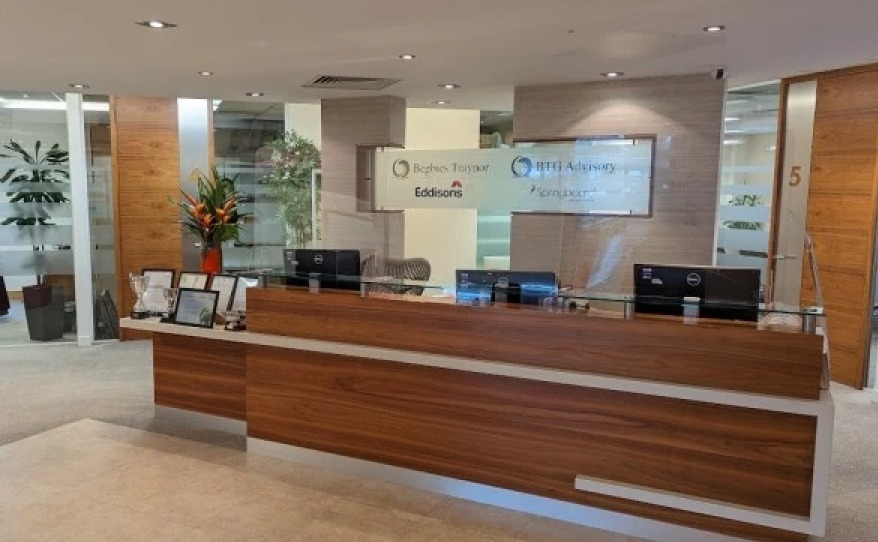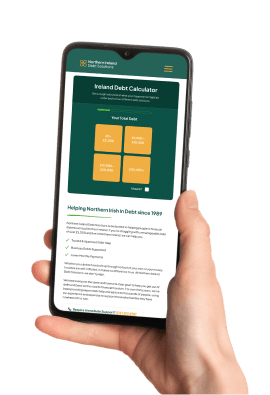Understanding the pros and cons of an IVA
For those dealing with unmanageable debt in Northern Ireland, an Individual Voluntary Arrangement (IVA) can be a great way to get a handle on the situation and begin paying down the money they owe. It can stop creditor pressure almost instantly and help individuals see the light at the end of the tunnel.
However, while there are a number of advantages to taking out an IVA, there are also disadvantages which need to be considered by anyone thinking of entering this type of arrangement with their creditors.
What are the advantages of an IVA in Northern Ireland?
IVAs are the most common formal debt solution for individuals across the UK, and this is because there are many advantages associated with this type of debt relief scheme. Some of the main advantages of an IVA are as follows:
- Affordable monthly payments: Your contractual monthly repayments are carefully calculated to ensure you are only required to pay back what you can afford. Your adviser will ensure you still have enough income to live on during the course of the IVA, with only the surplus amount being used to contribute to your IVA. If your income changes throughout the period of your IVA, your monthly payments will be recalculated to take this into account.
- Some unaffordable debt will be written off: You will only be required to repay a proportion of the total debt you owe as part of the IVA. In exchange for you making the contractual monthly repayments over the duration of the IVA, your creditors will write off the rest of the money you owe.
- Relief from creditor action: Once you enter into an IVA, your creditors can no longer contact you about the money you owe. This comes as a huge relief to many who have faced months – and possibly even years – of letters and calls from those they owe money to. All this contact will stop and creditors are also unable to take legal action against you once the IVA comes into place.
- Interest and charges frozen: Interest and charges on your debts are frozen which means every penny you pay towards your IVA comes straight off the balance you owe. This makes the situation much more manageable and stops your debt problems from spiralling further out of control.
- There is a set end date: IVAs typically last for five years, after which point, you will be free from the debt which remains so long as you have kept up with the monthly repayments towards your IVA. This gives you an end date for you to work towards knowing at this point you will be debt-free.
- Provides protection for homeowners: In many cases, an IVA is the most appropriate debt solution for homeowners as you will not be at risk of losing your home. Depending on the amount of equity you have in your home, you may be asked to release some of this – or alternatively makes another year of payments towards your IVA. This is hugely more preferable than the alternative of being forced to sell your home as would be the case if you were made bankrupt.

What are the disadvantages of an IVA in Northern Ireland?
Before signing up to an IVA, you should be aware of the disadvantages of this type of plan. While some of these may not be applicable to you and your situation, you should still carefully consider the impact as IVA could have on you.
Drawbacks of an IVA include:
- Your credit rating will be affected: An IVA will be shown on your credit report for six years starting with the date it came into place. This will have a negative impact on your credit rating and as such you may find it extremely difficult to access finance during this time. Once the IVA drops off your credit report, you can start work on improving your credit file by taking out small amounts of borrowing and paying these off in full and on time.
- A change in circumstances may affect how much you need to pay: While your IVA payments will be set at a fixed monthly amount which will be agreed at the start of the plan, any changes to your financial situation may affect this. If you experience a windfall payment such as an inheritance or a lottery win, it is likely that you will be expected to pay this into your IVA so that it can be used to pay down your debts. You will also be required to report any change of income throughout the duration of the IVA as this could also affect your contribution amounts.
- Not all your debts can be included: While many everyday debts such as credit cards, personal loans, and overdrafts, can be included in an IVA, not all of your debts may qualify for inclusion. This is because IVAs only cover unsecured debts and not secured debts, such as mortgages. Other debts such as student loans, magistrate court fines, child support arrears, and TV license arrears also cannot be included in an IVA, so you will need to make alternative plans to repay these debts.
- May affect your employment: Most jobs will not be affected by you entering into an IVA. Depending on what job you have, however, an IVA could affect your ability to continue with your employment. Certain roles, particularly those in the finance, legal, and property industries, may have terms and conditions which forbid employees entering into formal insolvency proceedings such as an IVA. If you feel this may be the case with your job, you should raise your concerns with your adviser prior to entering the IVA.
- Your IVA will become public knowledge: Once you enter into an IVA this will appear on the public Insolvency Register for six years. This means anyone searching your name on the register will be able to see when you entered into an IVA with your creditors.
How Northern Ireland Debt Solutions can help
If you are considering an IVA as a way to deal with your escalating debt problems, the team at Northern Ireland Debt Solutions are here to provide you with the help and advice you need. We will help you better understand your options before recommending the most appropriate course of action going forward, which may include an IVA. Contact the team today to take the first step.
Browse more topics related to this article
Get Started – Contact The Team Today
Ready to take the first step to a debt-free future? Contact Northern Ireland Debt Solutions today to understand your next steps.




